Introduction
So. We’ve established that fiber-filled plant foods are incredible for your health… But what are you supposed to do when your body can’t tolerate them?
This week on The Goodness Lover show we took a deep dive with naturopath, Kirsten Greene, on all things food sensitivities and intolerances.
Watch the Interview:
Kirsten explained:
😊 Her (literally) gut-wrenching personal story of overcoming food sensitivities
😵💫 The common signs of food intolerances (hint: they’re not all in your belly)
🍕 The difference between a food allergy and a food intolerance
📍 How to locate the root causes of your intolerances
🧠 How the 500 million neurons in the digestive system work as a second brain to help overcome food sensitivities
🚶♀️ The steps you can take to overcome pesky food intolerances (starting today!)
And SO much more!
Additional Resources
To connect with Kirsten Greene and discover more of her work, you can find her on Instagram and Facebook. You can also visit her website here.Transcript
Sarah: Hello. And welcome back to the Goodness Lover Show. Today we're joined by our medical herbalists and naturopath Kirsten Green. Who's here to talk to us all about food sensitivities, what they are, common signs you might actually have them without even having digestive symptoms and how you can carve away out of food sensitivities to food freedom. Let's get into it.
All right. We are here with Kirsten Greene. We are so excited to have you. We had you a couple of months ago I think it is now on the show and we spoke all things bloating and it went so well. Everyone loved it. So we thought we must have her back. So today we are diving into the topic of food sensitivity. So thank you so much for joining us Kirsten.
Kirsten Greene: Always a pleasure my little lovelies.
Sarah: So let's start by, I guess, let's define food sensitivities. What makes it different to a food allergy? Maybe it'd be nice to hear about you, your story. We know that you're a naturopath and medical herbalists, but we know that you come to this topic with a wealth of personal experience and not necessarily the best personal experience, but you're out on the other side now. So let's dive into it over to you.
Kirsten Greene: Cool. Thanks Sarah. And definitely one part that makes me a great naturopath is that I've been through it all. So I know how it feels. So I can definitely relate to my clients on a whole another level. So I had many food sensitivities or food intolerances, if you want to call them that. And I developed such a disordered relationship with food. I was terrified of food. I had massive food fear and the sicker and sicker that I got the worst that my digestion got the more and more food sensitivities I had. I like to think of them if you think about your tolerance levels. So how tolerant are you to a certain food or not. And with food sensitivities, it's dose dependent. So whereas a food allergy, this one is any little amount of can set you off into severe reactions. So our food allergies and food sensitivities, they both involve the immune system.
So there's little parts in the food called antigens. And then our immune system releases antibodies in response to antigens. So in the case of food sensitivities and food allergies, the immune system can get a little bit confused. And what would normally be considered harmless antigens the immune system now reacts to. So that's one part of it. My story is that I had digestive issues most of my life, but I didn't really know that I had digestive issues because that was all that I knew and not really everybody talks about it. So I just thought that I was weak, emotionally weak, because I couldn't have a relaxed relationship with food. It was always very hard for me. I was always trying to avoid eating as long as possible because I had learned that when I ate it hurt, I always complained of sore tummies.
I always had bloating after eating. I was always very tired. So I learnt from a really early age. I can remember back when I was like 10, if I had a test coming up at school, I would try not to eat the day before because then my brain was clearer. So that was the brain fog coming from the food. So there were so many things that were negatively associated with food for me. So it was always quite a struggle. And that led me to be here. So I'm very, very grateful. I love what I do. I feel fantastic now. And I really enjoy the work that I do. So when I was doing all the diets that said I would feel better, when I was trying different alternatives, what I was chasing was peace. I just wanted peace in my body. I wanted to feel at peace with food. I just wanted a peaceful relationship with food and my body.
And yeah, I have that now, which is really, really great. So when I was struggling with the food sensitivities, I didn't understand what was going on in my body so I found it so confusing and I felt so separate from my body. And often, unfortunately, particularly with IBS and SIBO small intestine bacterial overgrowth, it's often the healthy foods that cause the most amount of bloating and reactions to due to the fiber content. So it's so frustrating. So you're doing all the right things, like drinking all the water, doing all the exercise, eating all the healthy foods and still feeling awful. It felt really, really unfair. So as naturopaths, we love to know everything about everything and we often talk about our root causes and finding your root cause so you can heal it from there so you can get better and stay better.
I still can't tell you my one root cause of all my problems, but I know that I had lots of antibiotics as a child. I know that I used to restrict different foods. I know that I did the keto diet for too long. So all these little things added up to big things. And to overcome that I reverse engineered it and healed all the parts of my digestive system and did all the necessary emotional work to get to where I am now. So with food sensitivities I went through big periods of restricting different foods. And if we don't have something, we can't build up a tolerance to it, it would become intolerant. And I know if you know someone that just doesn't drink any alcohol and you give them a glass or two of wine, they're probably going to get drunk quite quickly. So they don't have an alcohol tolerance.
And then with food sensitivities, this is going to involve the part of the immune system and it releases something called IgG. So if anyone listening has ever done a food allergy or sensitivity test, you can see which immunoglobulin they tested for. So IgG will correlate with food sensitivities or intolerances. And then IgE, immunoglobulin E will show food allergies. So food allergies tend to produce an immediate reaction and pretty severe like anaphylaxis where you can't breathe. And the common food allergies could be peanuts or the tree nuts, shellfish, eggs, that sort of stuff. You can also have an intolerance to eggs. And so then the reactions that you might get with an allergy could be anaphylaxis, could be breaking out in hives, as it tends to be in a different part of the body that's not necessarily the digestive system and super, super fast.
Whereas an intolerance we tend to feel it in our digestive system and it could be a delayed response. And it is, well I say lactose dependent. So that could mean that you could have a piece of bread once or twice a week and be absolutely fine. But if you have bread every day, then you might feel bad from it. So it depends how much your body can or cannot tolerate. And there are some allergies that you can grow out of, it tends to be like milk or eggs. Whereas tree nut or peanut allergies tend to stay for life, but you can absolutely heal food sensitivities and food intolerances. That would be about getting to the reason why you have these resolve those issues and then do a gradual reintroduction in a slow methodical way. That's really cool. So I don't have any sensitivities anymore. So feeling awesome, getting all the foods.
Sarah: Yay. Awesome. What a great way, you answered my question perfectly. You weaved in the definition into your story. I'm like, I didn't feel like my question was very strong, but you made it a strong question with you're awesome answers. Thank you for that. So, I'm glad you said that right at the start, because I think for a lot of people listening, they want to know that piece, can I get better? Is there something that I'm going to be stuck with for the rest of my life? But before we get into the how we fix it, I think it would be great to talk a little bit about common signs of food sensitivity that may not be digestive. So you said before, you might have bloating, you mentioned before you personally had brain fog, what could be some other signs that someone is not coping very well with their food?
Kirsten Greene: Share this list of the symptoms and how good is most of them. Definitely have the brain fog. The brain fog is like that cotton wool in your brain. It's hard to concentrate. Everything's like it's a bit tight in there. I also used to get pounding headaches. So I had an issue with histamine foods, I had a histamine intolerance. So if I ate foods high in histamine, say like canned. I remember one day I came home from teaching yoga and I was so hungry and this is in the height of my intolerances, I couldn't really even look at a vegetable without bloating. So I was really hungry.
So it three cans of tuna in ago. And I got such a pounding headache. My heart went really, really far so you can have heart arrhythmias. And my skin was super, super itchy. And I was so anxious and that night I couldn't sleep at all because of the insomnia. So it can be histamine intolerance. You can also break out in hives and you can end up with acne. Acnes are very inflammatory condition. So when you cause inflammation in the gut, you can have inflammation on your skin and it can cause issues with your energy levels. So I was always tired. So there's so many things outside of the digestive system to look out for. Those are the main ones.
Matt: Awesome.
Sarah: Not awesome.
Matt: No I mean awesome in a-
Sarah: Well said.
Matt: Well said, yeah. Everyone is suffering from this right now [crosstalk].
Kirsten Greene: [crosstalk].
Matt: Awesome but sucking right now.
Kirsten Greene: It's really, really bad. Yeah, it is so frustrating and the frustrating thing is if someone hasn't been through it, it's really hard for them to relate. I even remember when I used to get bloated all the time after eating and I was six months pregnant kind of bloating. And I was chatting with another naturopath friend of mine, so knows about this sort of stuff. And I remember I lift up my top one day and I showed her my bloated belly. And she was like, "You just sticking it out." That is so dismissive. Why would I do that? I wouldn't do that. So unless someone's been through it, it's really hard for them to relate. So if anyone listening is going through this and your partner or your friend or your mom just doesn't get it, unfortunately they might not unless they experience it themselves.
Sarah: For sure. But you could use your food intolerances as a tool like I did. I used to be super intolerant to wheat. So I would use it like a sleeping pill. If I had a long call flight, I could have a bowl of Weet-Bix and I'd be out for the whole flight.
Kirsten Greene: There you go, there's one positive.
Sarah: Anyway. Not recommended. So over to you Matt.
Matt: All right, from the intentional poisoning to [inaudible].
Kirsten Greene: What could be happening there, if you want to [inaudible]
Matt: If you need to sleep just poison yourself.
Kirsten Greene: ... behind. If we causing lots of inflammation from digestive system, and then it's causing inflammation body wide, if it causes inflammation in the brain, yeah we can for sure get super, super sleepy.
Sarah: That's the way you do it.
Kirsten Greene: Not bad.
Matt: So you mentioned that some of these things to be quite stealthy, it's really interesting more than we've learned about it. I mean, we've done some testing, which should be interesting to hear what you think about the testing and then to man. If you don't do the testing what's some of the most accurate ways you can work out? We've gone a little bit into the science, but if it can show up a few days later, a week later, what do you do? It's a bit confusing. Isn't it?
Kirsten Greene: It can be so confusing. And then because it's dose dependent, so say you had eggs for breakfast on Monday, and that was fine. And then you had the exact same breakfast on Tuesday, and that was fine. And then you had the exact same breakfast on Wednesday, but it was not fine. So then why would you suspect that it was the breakfast when you had it the day before and the day before that was fine? So what can happen with intolerances you can get a delayed response and then you can... I like to talk about the bucket levels, like how full is your bucket? They're often referred to this with histamine intolerance, but I feel that it applies to all sensitivities. So say your bucket levels are pretty low you can handle a bit of your intolerance and it won't cause the levels to rise too much, actually let me use my water bottle.
So say this water bottle is just over half full. So I've still got some space before I overflow and cause symptoms. So Monday my levels are really low. So I add some eggs. Maybe I'm retiring to exit raises them a little bit, but not enough to overflow, Tuesday raises that some more, but not enough to overflow, Wednesday raises it too much and now overflow, and now I get the symptoms of the intolerance. And then with the immune system, if we get to that point where we've triggered this, and now we have a flare, it'll probably take around three days for it to calm back down. So do know that if you've overdone it and you're now in a flare and you've got all these symptoms, if you can let things calm down for about three days, you'll feel a lot better. And when I say calm down, I mean, go back to the foods that you know are working for you at this time and your levels come down again and then try again at a lower dose.
So with the food intolerance testing or food sensitivity testing, I don't love it to be honest and tolerances will show up if you've been eating that particular food or it won't if you haven't, because our immune system is releasing antibodies in response to the antigens. So the antigens are the foreign invaders the antibodies are what our immune system releases. But if you haven't been eating it, then your body won't be releasing the antibodies. Going back to allergy, they say with celiac disease, a person with celiac disease has an allergy to gluten, whereas a lot of other people have an intolerance to gluten. So if you want to do a celiac test, you can start by doing a gene test. So there's two genes, HLA DQ2 and HLA DQ8. If you don't have those genes, you can never ever get celiac disease.
So it's a wonderful first place to start. If you do have those genes, there's a one in 30 chance, you could go on to develop celiac disease depending on what you do with your life. So do you drink all your water? Do you get your exercise? Do you sleep well? You probably won't develop celiac disease. If you are in high stress mode and you smoke and you binge drink and you eat crappy food, then yeah, you might get celiac disease. And then to fully get the diagnosis, you have to do a trans tissue glutaminase test, which is the antibodies released in response to the antigen. But for that test to effective, you need to have in eating gluten. So you need to be eating the equivalent of so much than four slices of bread every day for six weeks. And then you do this trans tissue glutaminase test.
And if you haven't done that gluten challenge, the test result isn't going to be accurate enough. So eating four slices of bread everyday for six weeks is going to cause inflammation in anyone's digestive system intolerant or allergic to gluten. And then with the intolerance tests, it can depend on yeah, what you were eating at the time of doing the test. It can depend on your hydration levels, on your stress levels, on did you have a cold or a flu? So there's so many variations that for me, I don't put too much kudos. What's the word? In food intolerance tests. I will look at them if a client has had one done. And if something is showing up in the red zone, then yes, okay, we can remove this for a while before bringing it back in. But my preferred way is doing a food and mood journal.
So you're going to know your body better than any lab. You're the one living in your body. You're going to know how you're feeling on any given day. And then with food, I call them food and mood journals because other... Sorry, other symptoms that you might not be connected with your digestive system. I mentioned earlier that I had really bad anxiety, such bad anxiety, and such bad social anxiety. If I tried to talk to more than one person at a time, I would freak out and then I'd get a social hangover, I need to go back to bed for two days. So paying attention to not just, are you bloated or constipated or do you have diarrhea? But also what's your anxiety levels like? What's your happiness levels like? Are you feeling nice and calm? Are you sleeping well? And then if you do a food and mood journal for just five days, you can do it for longer if you like, but at least five days and include a weekend because habits are a little bit different on the weekend and write down everything that you eat.
So not just I had soup, what was in the soup? Not I just I had a salad what exactly was in the salad? And then write down the symptoms that you are wanting to resolve. So if you have anxiety, how anxious were you on that day on a scale of one to 10? If you have bloating, how bloated were you on a scale of one to 10 that day? And then, because we can say, "I am bloated." But how bloated are you? So you can see, oh, Monday I was eight out of 10. Wednesday I was only a three out of 10. That was a good day. And then when we have it written down, it's so much easier to make connections. So, if you see that you had tomatoes on Monday, Wednesday, and Thursday, and your symptoms were worse that day, maybe we can choose to put them aside for now.
You don't want to take anything away forever. I don't believe we went to fix the problem so we can eat these things again. If you were to break your leg, if you did nothing about it, it's never going to be fixy or be able to use your leg again. Whereas if you get a set in the car, so you use your crutches, you do the physio, then you get to use your leg again. That would be a better solution. So rather than if there's something that you're reacting to, if it's like tomatoes, rather than never eating tomatoes again, resolve the issue, why you can't tolerate the tomatoes and then bring them back in. And then there's different categories of different foods as well. So if you notice that you react to tomatoes and also capsicum or bell peppers, then maybe you're also going to react to goji berries, because they are in the same category of different food, the nightshades.
Then there are the histamine high foods. See if you're reacting to one histamine, high food, you might be reacting to another high histamine food. And again, we don't want to become scared of food. I can absolutely do become scared of food. And like I had a mindset of, I can't eat that, that actually we can eat anything that we like is just, what is it going to, how is it going to make us feel? That's a nice little shift to start making as well. And then also, rather than saying, "I can't eat bread." It's, "I'm choosing not to." It's way more empowering. It feels way nicer in the body.
So you can do anything you like, but there's certain things that are going to make you feel better and certain things that are going to make you feel worse. So that's what you choose to do. And so go through your food and mood journal, see if you can make connections, trying not to become obsessed about it because that can also create more issues. But coming in a place from curiosity, like what makes me feel better? What doesn't make me feel so great? And go from there.
Sarah: So how long would you recommend doing this food mood journal?
Kirsten Greene: At list five days and including a weekend because habits are a little bit different on the weekend.
Sarah: Okay, then what is the next step? I guess maybe someone's noticed some common threads through their journal. Where do we go from there?
Matt: This would be Sarah's diet. I need her to sleep. Eat wait. [inaudible] diet for you. Flying across the country. I need her to sleep. Wait. I wonder if there is a connection? I wonder.
Kirsten Greene: I wonder.
Sarah: Anyone that didn't catch my sarcasm earlier. I'm not recommending you bing on your food intolerance.
Matt: I had some gluten and I went to a [inaudible]. Do diet. Investigate this.
Kirsten Greene: What could be going on? When we learn that we have something going on, then like the first step is awareness. So if you've now figured out, yes, I've got some food sensitivities. We want to get to a place where we can eat them again. So then it's about identifying why we might have a sensitivity to a certain food. So there's a few different mechanisms going on. So mentioned that involves immune system, but why has the immune system gone funny in the first place? So often there's so many different digestive issues that can cause different food sensitivities. So we care about IBS, irritable bowel syndrome, which is just like a collection of symptoms. That's not actually telling you what you've got going on. Then other could be SIBO, small intestinal, bacterial overgrowth. You can have leaky gut, which often is not caused by. That comes alongside at the same time as then, I'd also be looking at nervous system stuff.
So we've got so many nerve endings in our digestive system. There's 500 million nerve endings in our digestive tract compared to around 300 million in our central nervous system. So, I mean, it's called our own enteric nervous system. It's even a little brain by itself. So if your nervous system is frazzled like in the rest of your body, if you aren't high alert all the time and you can't quite manage your stress, the nervous system in your digestive system is going to be affected as well. And then we have something called visceral hypersensitivity. If your nerve endings are hypersensitive in your digestive tract, you can have a reaction to the food as well. So it's important to figure out why you have the SIBO, why these... Sorry, see you on the brain. Why you have these food intolerances and resolve it from there again with me not knowing my one root cause I ended up with SIBO and that's what caused that to, it was a combination of different factors.
And so identifying, if you have something underlying going on, if you don't have a big condition like SIBO or SIFO or something else, then it can be quite simple. Not saying it's easy and that those two are quite different, but it can be quite simple to overcome. So you might need to remove your biggest triggers for some time, find foods that do make you feel good and start there. And then you probably going to need to do some gut repair. So there's a couple of different supplements that can be quite lovely for healing, your gut lining like glutamine or slippery Elm, and then gradual in re-introduction of these foods. So we can overcome intolerance by say, a lactose intolerance here, come two ways, one by constant exposure. So constantly drinking the milk, which I don't really recommend, and also by paying attention to your microbiome.
So there's different kinds of bacteria in our microbiome in our digestive system that break down different kinds of foods. So the food for a bacteria is fiber. Fiber is indigestible part of the plant food. So our human cells don't break it down. We rely on the bacteria to do that. So if we have a sad starving microbiome, it can't do the work that it was designed to do. Our bodies are so incredible when it is in a state of balance. It is this amazing self-regulating machine that we don't really need to pay too much attention to. We just need to care for it properly and it does the rest. So if we've got a microbiome that hasn't been well fed for some time it can't do the job that it was designed to do, which is to break down your food and then give you the stuff that we do want and then help to eliminate the stuff that we don't want.
So if we can work on our microbiome and get that stronger, it takes care of most of the other stuff that we don't even need to think about. And then a marker of microbiome health is how diverse it is. So saying like in the Amazon rain forest, if you think, oh, anyway how diverse that is, is super healthy and vibrant. And then different kinds of fiber will feed different kinds of bacteria. So therefore different kinds of bacteria will break down different kinds of fiber. So if you're only eating five different kinds of food, you're going to have a very limited diversity of different fibers, which will then mean you've got a limited diversity of bacteria.
So say like there's double whammy effect. So the more fiber that we eat, the more different kinds of bacteria that we eat. But definitely starting slow because if they haven't been fed for some time, it would be not a great idea to go from eating five foods to what I eat now. It took me time to get here. My worst, I was eating chicken and eggs and not even looking at a vegetable because it made me bloat so bad. So by doing that, I put myself into a little corner. So I had to come back out very slowly, but totally here. And when I say slowly I mean a teaspoon at a time is enough and recommended. So there's so much research that shows a teaspoon of a kind of food is enough to start feeding the bacteria in your microbiome.
So it's like gently nursing them back to health, and then the stronger they get, the more that they can tolerate. So then you can add more things from there. So instead of trying to eat a whole apple, try a little bite of an apple on one day. So you try it on Monday and then try it again on a Wednesday, try it again on a Friday. It seems super slow and it will be frustrating at times, but it will get you there so much faster. It's a slow and steady reintroduction of the foods.
Sarah: I love that. On our last coaching call that you jumped on for some of our community members, you gave the little illustration of a seedling. I don't know if you recall it, but maybe you could share that as I thought that was a great little illustration.
Kirsten Greene: Sure. I remember back in school, they used to give us a little science experience, like putting a little seed in between two beds of cotton wool. And so the cotton wool is damp enough to start bringing the seedling to life. And it'll start to germinate. If I was to dump a whole bucket of water, I would just smash my poor little seedling and it would be too much. So we want to gently nurse it to health and then it become strong and say like a tree that's extremely strong and strong. And then you can totally dump that bucket of water on it. And it'll be absolutely fine. So we don't want to flood our system before it's strong enough to handle it.
And also, if you think about fiber as like pouring gasoline on a fire, if you trying to get a fire going, you don't want it to whoosh and cut off your eyebrows. You want it to come to life as well. So you want to nurture your little fire. So fiber is so important for our bugs and for our microbiome but if you haven't been having any fiber, you're not going to be able to digest it right now. You need get there slowly.
Sarah: Love it. Thank you.
Matt: So I'm curious if someone's listening to this and I guess they're like, oh, this sounds like a lot of work, what's a bit of bloating amongst friends? Everyone's got a bit of a belly these days and maybe they're even semi addicted to some of these foods. And I'm just curious as to what are some of these downstream effects? If you do not deal with this low grade inflammation from persistent food intolerance, where does it end up? You've obviously treated a lot of people that have gone down this journey and not realize that you can actually end up in places that you really... It's worth dealing with right now, before it gets too bad. So I'd be curious. What have you seen?
Kirsten Greene: It'd be so sad because I think a lot of people don't know just how amazing our bodies are designed to feel. So, it's not just our digestive stuff and it's not just maybe hiding your belly with a baggy top. If you get on top of your digestive issues, you will have more energy. You'll have more confidence. You'll have more oomph to go out and live your life. So, that's one side of thing. You'll be missing out, you're missing out on your freedom. So I have a awesome life now. I also had an awesome life six years ago when I had SIBO, but I couldn't enjoy it because my digestive issues were putting a cloud over everything. So I stopped surfing as much because I was so embarrassed, I couldn't go to yoga because I couldn't bend my tummy. I was so full of self-loathing that it was a struggle to look at anyone in the eye. I struggled to look at myself in the eye, in the mirror. So there's that. So you will miss out on your freedom for your life to eat what you want to eat and feel good. On the flip side. So the negative way, more negative stuff, if you don't resolve your food intolerances, you are literally going to starve. So if you can't break down your food, you can't absorb the nutrition from it. It's not just you are what you eat, it's eat what you can digest and absorb.
So you can have the best diet in the whole wide world but if you can't get the nutrients from it, you'll end up malnourished. Then if you are creating inflammation in the digestive system. So inflammation is a part of our immune response as well, on the outside of our body it's red sore bit and acutely like short-term, it has a super awesome function. But chronic inflammation is the root of all our big diseases. From obesity, diabetes, cardiovascular disease, depression, alzheimer's, cancer, any big disease, you can tie back to inflammation. And our digestive system and the book is like, oh health begins in the gut. I say, it will help. He says, all disease begins in the gut.
So if your gut is in a mess, then you are going to create inflammation in your gut that can then become systemic. So it becomes body wide. So it affects everything, everything. If your digestive system is not working, you can not expect to have a healthy anything. I would challenge anyone to give me any sort of thing that goes wrong in the body and not be able to make it connection to our digestive system. You'll end up with all the mood changes. There's such a big connection between feeling depressed and inflammation in our gut. So if we aren't able to digest our food properly and it starts to ferment or become rotten in our gut, it will feed the wrong kinds of bacteria and starve the right kind of bacteria. And then the not so good kind of bacteria release these things called lipopolysaccharides, which is considered an endotoxin are produced from within the body. So inflammatory.
And then if that gets into the bloodstream, like say through leaky gut, then it can get into the brain through the blood brain barrier that can cause inflammation in the brain. And it's one of the biggest causes of feelings of depression. And then if there's too much information in their brain for too long, then you can end up with things like alzheimer's. I massively struggled with depression through all my sort of stuff. And the nervous system is involved as well. So we've got the enteric nervous system, but inflammation is one of the biggest drivers of all chronic health conditions. And if we look after our digestive system, if we look after our good bacteria, that they produce natural anti-inflammatory things like one of our short chain fatty acids called Petri raid. So again, we just need to look after them and they take care of us. They're so cool.
Matt: Hopefully you're convinced from that amazing
Kirsten Greene: I love them.
Matt: ... articulate spiel of why that's important.Thank you for summing it up. And you said it in such a friendly way as well, even though you're talking about all these intense things, but it was really well said, and I love the framing as well about the fact that this is what are you missing out on? So many people just think that that brain fog or just lack of energy is just normal and that's just what life is or I'm that age-
Kirsten Greene: Yeah, so not. It would stop me from accepting dinner invitations because I would go into a panic. As soon as someone invited me to dinner, I was like, "What am I going to eat? Do I just eat the thing and pretend that I'm normal? Or do I stick to what I know that I can eat, which is chicken breasts, or if I do pretend that I'm normal, eat the potatoes, how long am I going to feel bad for? Do I need to prepare for that?" It takes over your life. And it's so nice to be able to get to a place where you can forget how sick used to be. So, I talk about it a lot with work and interviews and stuff. So, I remember that I felt really bad. But if I didn't do that, I would forget that I could fall into a heap every time I ate and then I would be on the bathroom floor crying because I'm so far removed from it now that I've forgotten how sick I used to be.
And that's when I think, you really feel healed. That's absolutely possible. And I absolutely do believe it is possible to heal from food sensitivities. Allergies sometimes, maybe not. But food sensitivity is like, if you can get to the reason why you can't tolerate this food and do a methodical planned approach, it's absolutely possible. And doesn't have to take that long. So you could have had food sensitivities for 20 years, but if you do a plan and stick to your plan, you can feel so much better in like three months. Three months tends to be the minimum amount of time to really turn your digestive system around. And it doesn't mean that you're going to feel bad for three months it's a progression.
It's never a straight up line though FYI. You might get up and then [inaudible] and then [inaudible] and then up. So we're looking for a gradual progression over time. So it's wonderful to check in with yourself and check in with your progress, because if we're having a bloating flare, it's really easy to just feel really down on ourselves and I'm not progressing. But check in where you were one month ago. Check in where you were two months ago. It's not that long. Life's going to happen anyway. It's so nice to imagine where you could be in three months time. Where could you be in six months time? And then I've heard someone say, what we can imagine is the bottom of what we can achieve. So that's pretty cool.
Matt: That's awesome.
Sarah: I like that. So let's recap. So I guess we have maybe two groups of people that might be listening to this call. We have one group that is like, "Oh, I'm bloated all the time. I'm not sure why." And then we have like the OJ bloated people that are like, "I'm down to two foods and I know which ones they are." And so I guess the first group, they should be getting charged up to start their food mood journal. And the other group that would maybe should be slowly teaspoon style reintroducing the food, or would you recommend there's a step in between starting to introduce all these new foods?
Kirsten Greene: I would love for them to poke in with a practitioner just so they can see.
Matt: I understand.
Kirsten Greene: We're so well-trained to look at the big picture so we can... And even myself, if I have something really wrong, I will go and see... So back when I had SIBO, I had so much personal knowledge and then I researched like a crazy person for two weeks. And then I still booked in with a naturopath that knew more about SIBO than I did so I could double-check my plan, know that I was doing the right thing. Did he have any other suggestions? And I followed that for a bit as well. So it's so important to be able to zoom out and see the big picture. So we can go down Dr. Google rabbit holes, and be convinced that MTHFR is the root of all the issues. But what if it's not?
So if you go see a practitioner that specializes in what you've got going on, you will get better, so much faster. And the money that you invest in seeing that person will save you so much money down the line, and it'll save you second guessing yourself as well. So I'd like to say my analogy is going to... So say, you put a destination into Google maps you might get four different routes to get there. You can't take all four routes at the same time you'll never get anywhere. So if you choose one route go down there do it properly, you'll get there faster. So definitely check that or investigate if it is something bigger or deeper going on, because it's never just about the sensitivities. Like why did you end up with the sensitivities? So for me, that was SIBO.
So it was actually a wonderful thing to find out because all my life, I thought that I was just broken and this is how I'm going to be forever. And if this is my life, I don't want it. So finding out that I had SIBO was okay, I can work with this. So then I got rid of the SIBO and then I did all the gut healing stuff after that. And now I have a very healthy functioning digestive system that can eat all the foods. So Definitely investigate if there is something bigger going on, because if there is, you have to deal with that, you can make improvement, but you'll never, probably, I shouldn't say absolute, you probably won't get to level of health that you want unless you address underlying conditions.
But if you do want to see how you go with food, just, I would pick maybe three to four new foods a week, don't overdo it. Don't try and stress yourself out. And pre-planning them, pre choosing them will help to take away that decision fatigue and the overwhelm. So if we can make decisions ahead of time, then we can just put aside and stop focusing on it because there is such a tendency to become hyper focused on food and hyper focused on our reactions that we have to it. So make a decision, to take your list of foods. And you could maybe start with looking at the bi-phasic diet, because these are very well tolerated foods. So you could start there, but please work with a practitioner and then just choose three or four each week and then just do a little bit. So like a teaspoon of one thing. And then next time you can try a tablespoon, next time, try two tablespoons.
It will seem painstakingly slow, but this is how you need to do it. So back to the little seedling thing, if you try and dump too much water on it, too soon. If you put it in the sun for too long, too soon. If there's too much wind, too soon. It's just going to die. You're not going to smash your good bacteria if you do too much too soon, but you will just need to pull back and then try it again. Same like if you go to the gym, say you haven't been to the gym in a year, and you're going to pick up the biggest weight, there's a chance that you could tear a ligament. So then you've got to let that heal. So then you've got to go out the gym for some time heal the damage that you're done. And then you're going to start at a lower weight anyway. So you might as well start at the lower weight and get there faster.
So me, when I was eating the chickens and the eggs, the unethical rule of thumb is to try and aim for the low starchy fitch as a first place, we need to start. We need it for our microbiome, but there's certain things that will be easier to digest sooner. So foods that grow above the ground tend to be lower in starch and veggies that grow below the ground, tend to be higher in starch. You can also tell by the texture. So like an asparagus will be quite crunchy, whereas a potato will be quite soft and starchy. So it can be a nice place to start. And staying curious about it and trying not to become hyper obsessed about it. And go out and have other areas to focus on in your life. So go out and join a club, do a sport, see your friends, do non-food things as well. If your health journey is the only thing that you have to focus on, it can become all consuming and can slow down your healing. There's another mistake I made.
Sarah: Thank you Kirsten. And so what would be your top tips for someone trying to discover what their underlying cause is? So we have a great framework to start maybe moving out of the food intolerances, but unless we get to the bottom of why I got there in the first place, we might be treading water for longer than needed. So how do we go about it?
Kirsten Greene: So the timing of your bloating, as we say, let's go boating, because that can be quite a big reaction. So if you are bloating within like 15 minutes after eating, it could be that your stomach might need some love. So we need the hydrochloric acid in our stomach to break down our proteins. If your bloating is happening between 20 minutes to up to around two hours, then I'd be looking into SIBO, small intestinal bacterial overgrowth because that's the transit time through our small intestine. And then if it's say after two to three hours after eating, then it could be a microbiome issue from there. And you could have all of the above at the same time as well. So, SIBO is such a big cause.
So with testing, if someone has done a test, I will look at it, but I come from a place of testing if it's going to change my treatment protocol or not. So by doing a proper case taking, I can tell if someone's tired, I don't need a test for that. If someone's anxious, they can tell me that. I can tell if someone starts sleeping they can also tell me that. So I don't really need an adrenal panel for this person. They're like tick, tick, tick. Yeah. There's some adrenal work that we need to do. If someone is not having irregular bowel motion, if someone is reacting to certain foods, if someone has skin stuff, that's like, yeah, well their digestive system needs some help.
So if I was to say, start by doing a microbiome analysis, most of my clients are going to need microbiome work anyways. So that's not really going to change my treatment protocol because I can tell enough by listening to that person that they need microbiome work. So it's interesting I love them, I love them. But with something like SIBO it's such a big cause of food intolerances, food sensitivities, bloating, gas, anxiety, depression, skin issues. You to need the result from that test to be able to know what treatment protocol to do.
Because if you were to not treat for SIBO and you have SIBO and instead do microbiome work that could make your SIBO worse. So when you do a SIBO test, which is a breath test that you can do at home, then this will give you the information that either yes, you have SIBO or no, you don't. And then if you do have SIBO, it will tell you what kind of SIBO. Is it DM hydrogen, DM methane, hydrogen sulfide. Because again, for the individual SIBO, you have different treatments as well. So really common mistake is I see people not testing or I see people going by their symptoms instead, and then doing the wrong treatment protocol and often making things worse.
So the CBRE breath test is one that for my clients, for sure they come to see me with their desk of issues. I even if I'm mildly suspect, I will test. Probably like 85% of people with SIBO have the bloating, but again, not all have the voting. So it's super simple to do. You can do it at home. You get the results back within a week and you can have so much more conviction in the treatment that you're doing, which is also super important. And you can make sure that you're doing the correct tuning protocol from there. And then people with SIBO often need to work on stomach acid, often need to work on the microbiome, often need to work on leaky gut. So if you don't have SIBO, awesome, it can be very simple and it can be as simple as working on your microbiome, through the food diversity, through different prebiotic supplements. If you've had digestive issues for some time, chances are, you have leaky gut too. So you might need to do some gut healing work. Yeah. That makes sense. So pretty much I'd start with the SIBO test.
Matt: Yeah, well we a hundred percent working. Oh, I recommend working with someone that knows their stuff. And I think we might be looking at someone that might know this stuff on this topic. So how would-
Kirsten Greene: Hello, I know this stuff.
Matt: So how do people get in contact with you if they'd like to go down understand more about this food sensitivity journey or they might think they have SIBO, what's the best way of getting in contact with you?
Kirsten Greene: Emailing my team, so info@kirsten-greene.com. I'm also very active on Instagram at the Instagram handle right there on the screen. I'm posting pretty much every day. And I think it's very important to have the same sort of values as the person that you are going to work with and actually like the person that you're going to work with. So if you check out my Instagram and we resonate, then you can inquire about working with me. I have self guided courses that you can do to fix your SIBO and work on the microbiome. I also do group coaching programs. I've got one coming up soon and I also have a team of naturopath now that do one-on-one consultations. So there is much support out there, something for everyone. So free content, online courses, group coaching, whatever it is appropriate for where they are at that time. So much-
Sarah: I love it.
Kirsten Greene: And I make it fun and I've been through it. And I know also as you go through the journey, there will be some ups and there will be some downs. Is this down something that needs to be corrected or do you need to push through? Yeah, there's so many benefits to working with a practitioner.
Sarah: Awesome. And for those listening-
Kirsten Greene: Just quietly.
Sarah: For those listening on our podcast platforms, that was kirsten.greene.nd. And the Green has an E just to be fancy.
Kirsten Greene: It is actually, I put it there.
Sarah: It's funny. Oh, well, thank you so much for joining us. Once again, Kirsten, we always love our chats and you're always so informative. You give us as much info as you can and you always make us giggles. Thank you once again. We've loved having you.
Kirsten Greene: My pleasure.
Sarah: And for-
Kirsten Greene: Thank you for having me.
Sarah: And for our listeners at home, you can jump on Kirsten's Instagram as a great place to start, she has all her links to everything on there. But yes, thank you once again. Food sensitivities, so many people live with it and they don't have to say thank you for pointing-
Kirsten Greene: I know.
Sarah: ... for all of us.
Kirsten Greene: Yeah, absolutely. Take our message, you can heal from food sensitivities and it's not just about the food that you will get, it's freedom with your life that you will get.
Matt: That was such a good talk. We love Kirsten, she's amazing. And I hope you can get that from her energy and her passion and just how well she explained things because one, she's done so many times, she's helped so many people. And two she's been there herself. So great interview and we'd love to know what you think. Obviously we always ask that, but we've been through this as well, to some extent myself, specifically, with SIBO it can be really demoralizing and hard. So I hope you got some encouragement on the call, some practical tips and let us know if we've missed anything. Leave us a comment as to some tips that you would suggest or thoughts or feelings of the conversation that would be great. And don't forget that little thumbs up. Little thumbs up, helps the algorithm that you true planned and give us a subscribe, if you really want to love us. We'd appreciate that.
Sarah: Well, thanks again for joining us for another episode and we look forward to seeing you next week.






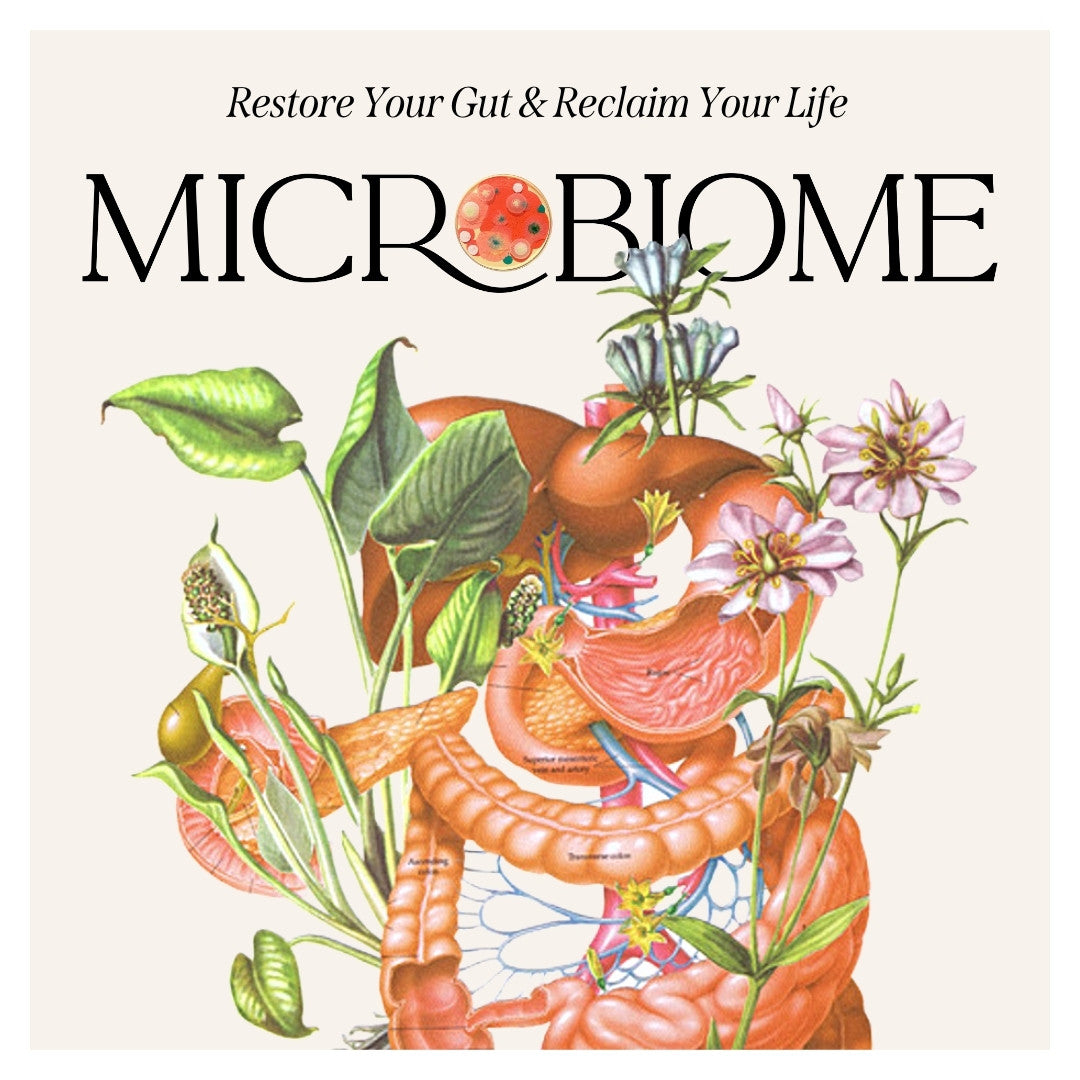

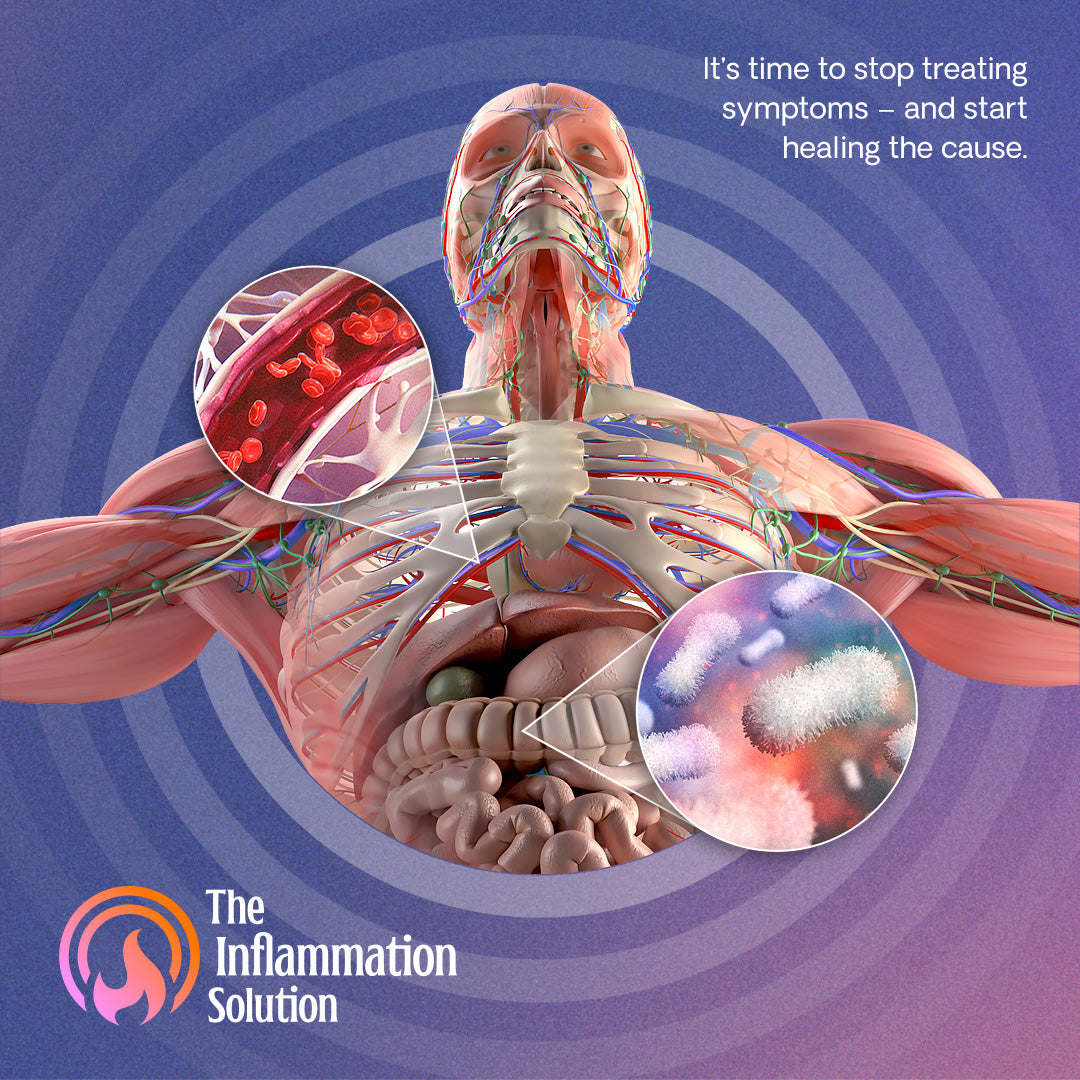
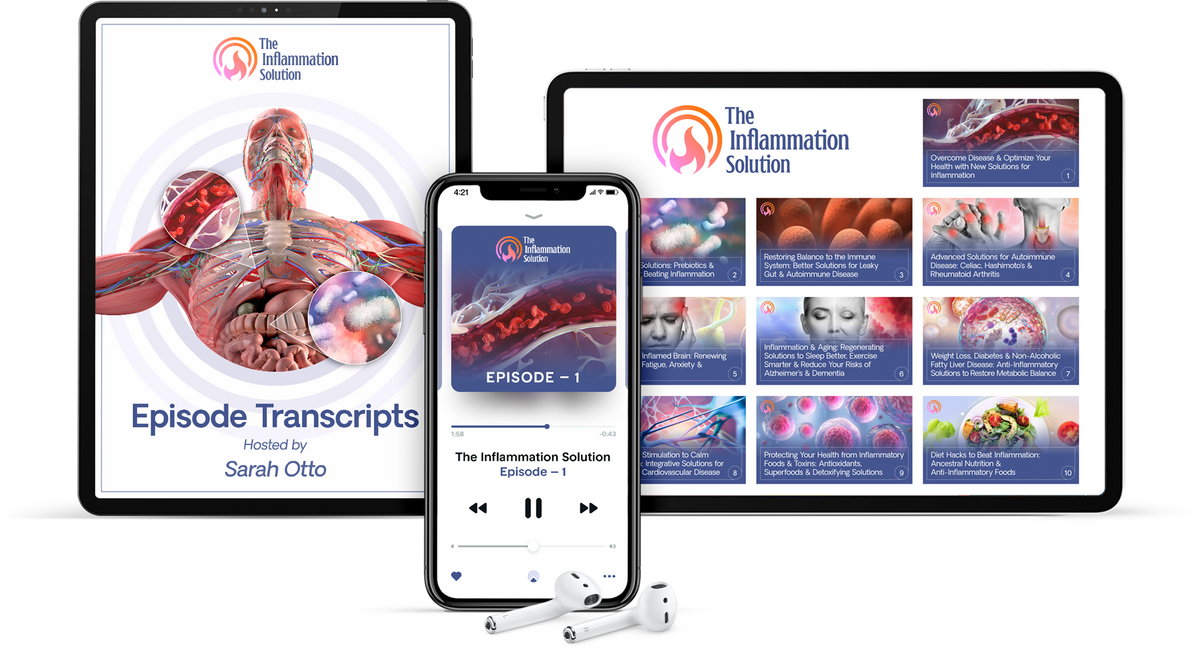
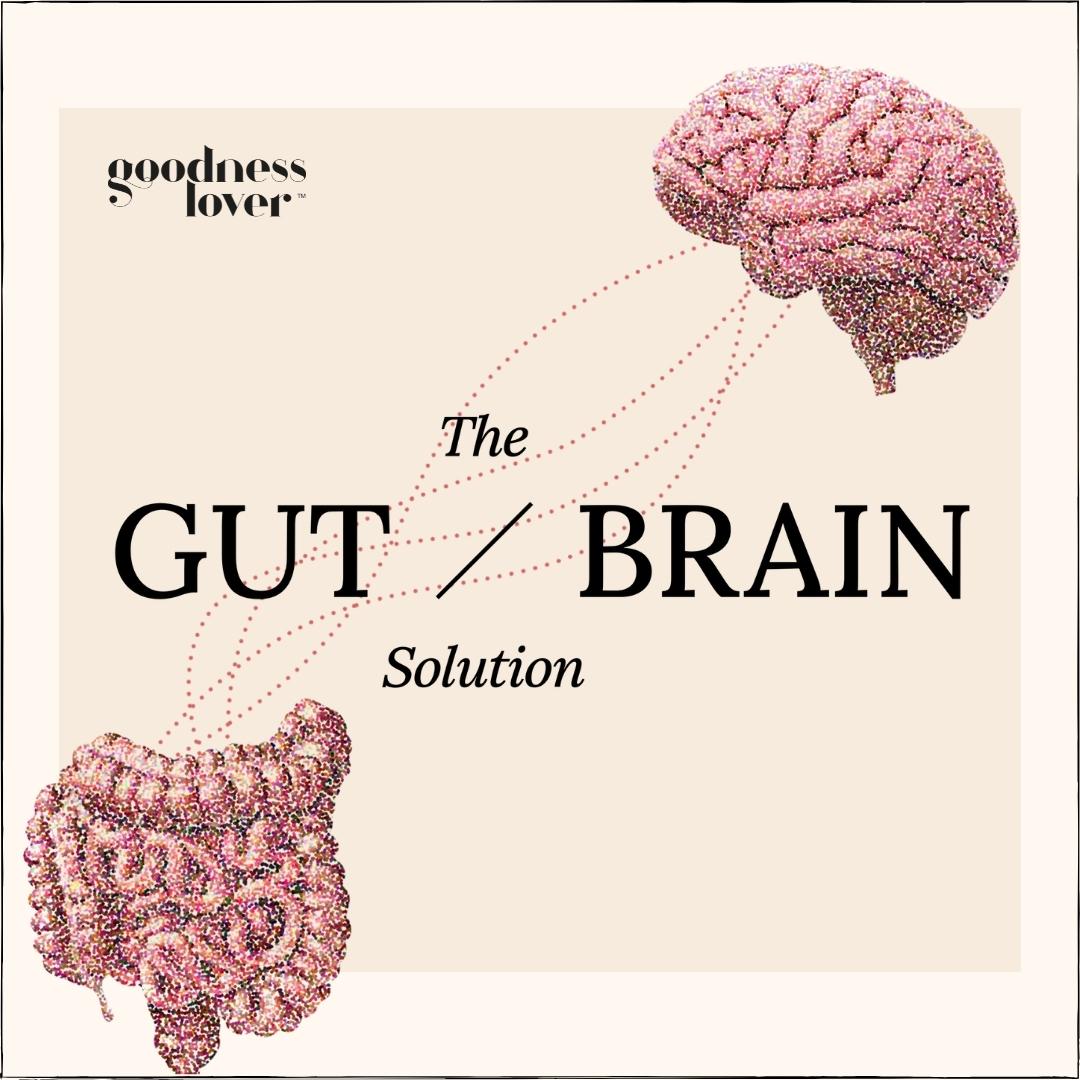

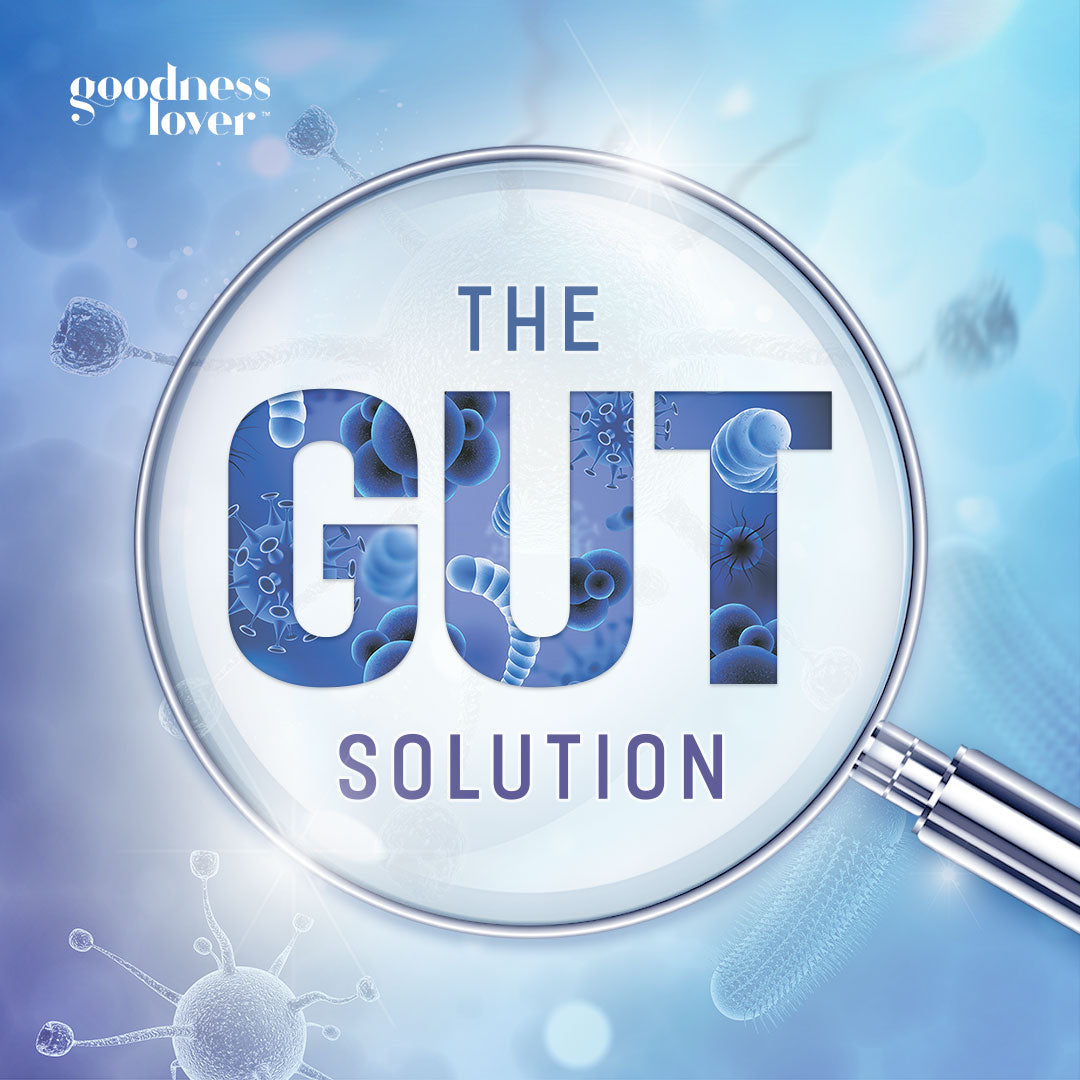
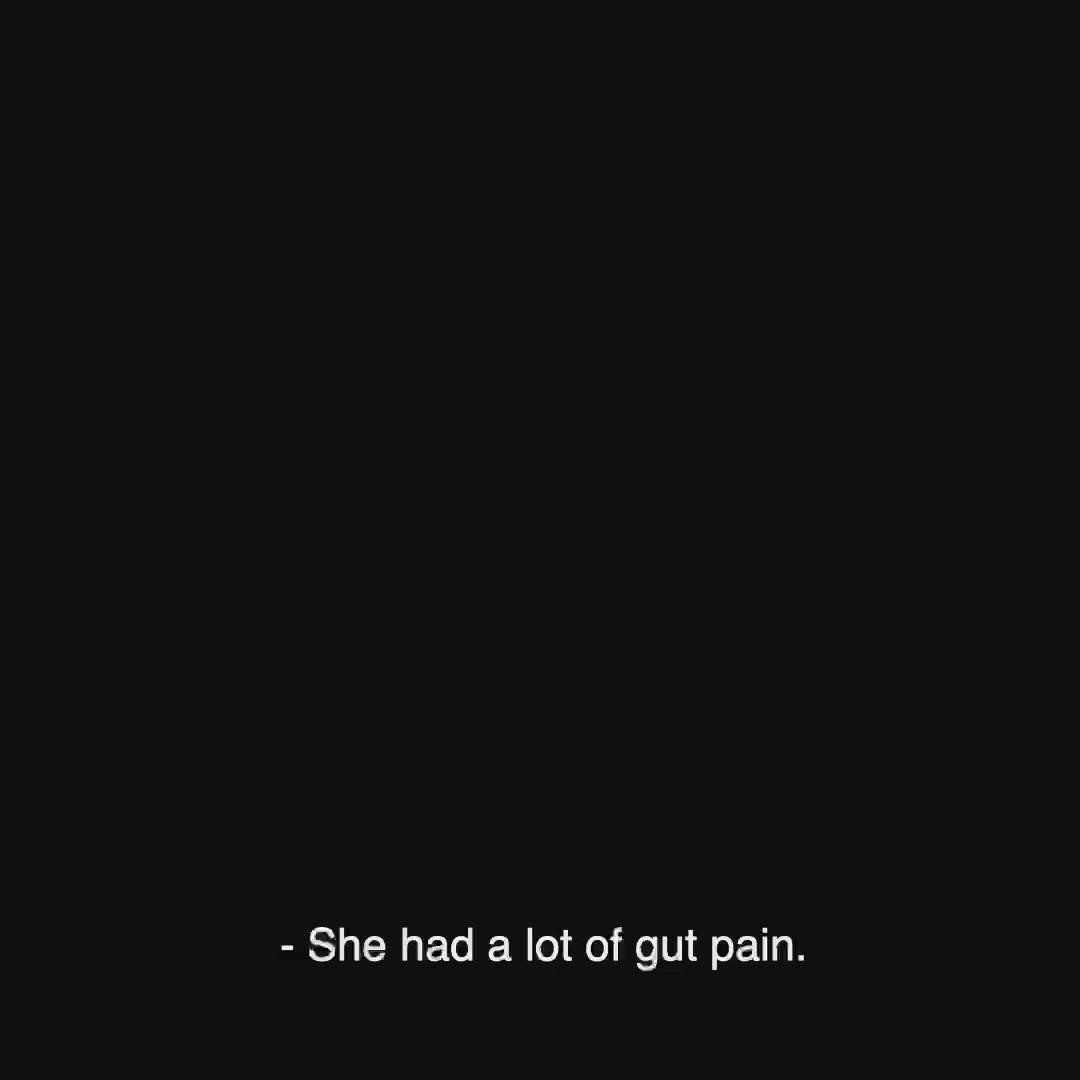
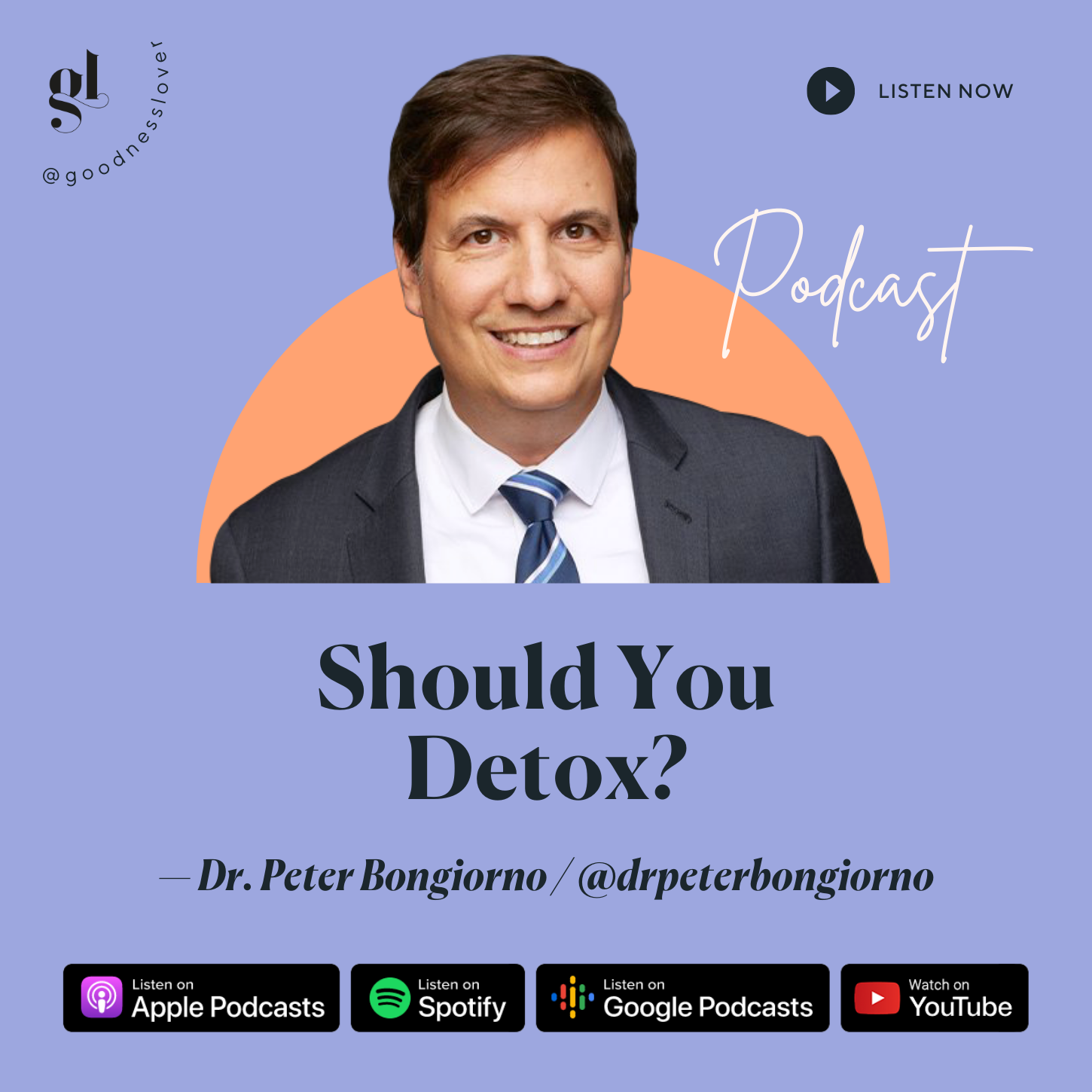
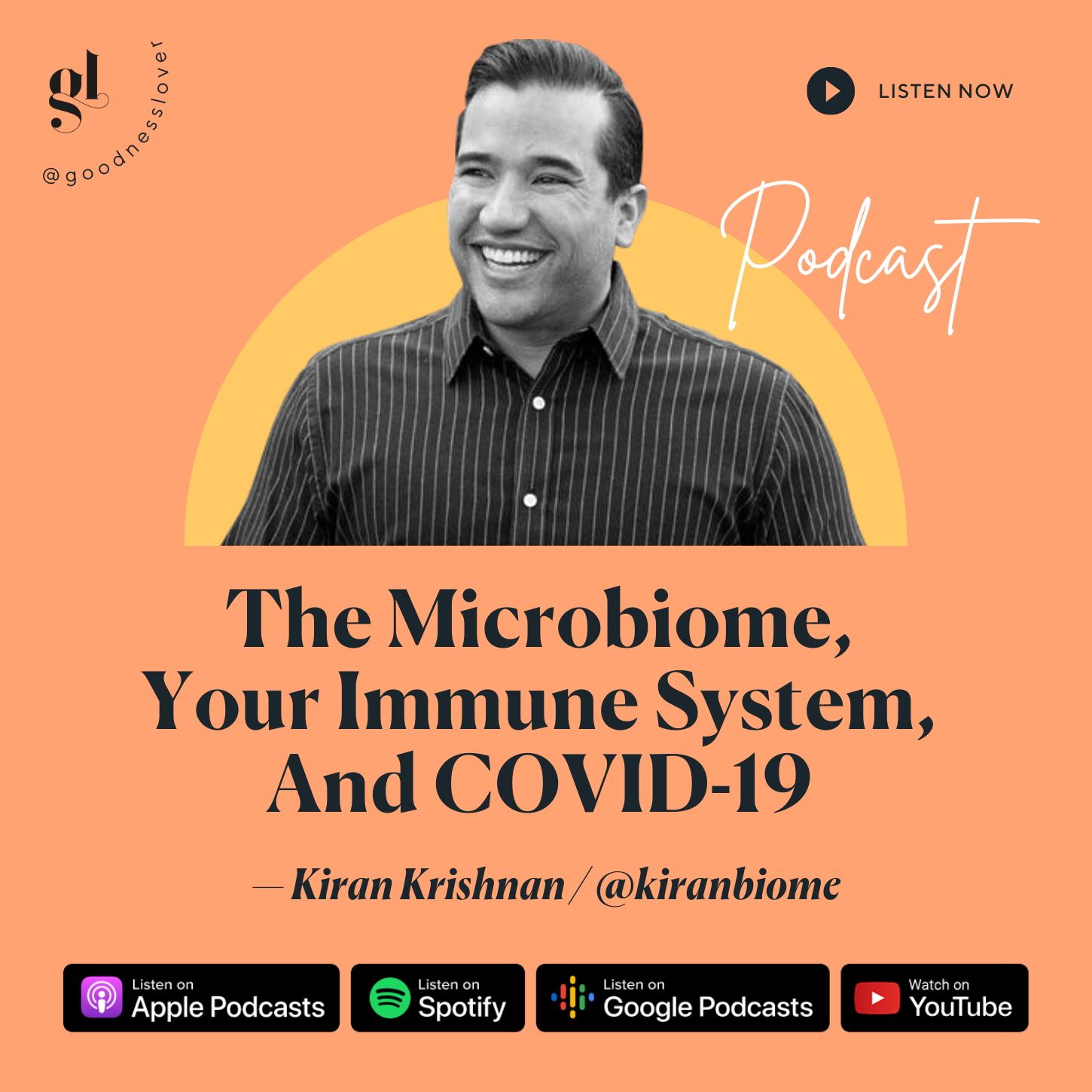

What Do You Think? Comment Below: